| | | | January 2021 • Issue No. 13 | | COVID-19 Exposed Entrenched Food System Issues. We Need a Coordinated Solution. | | 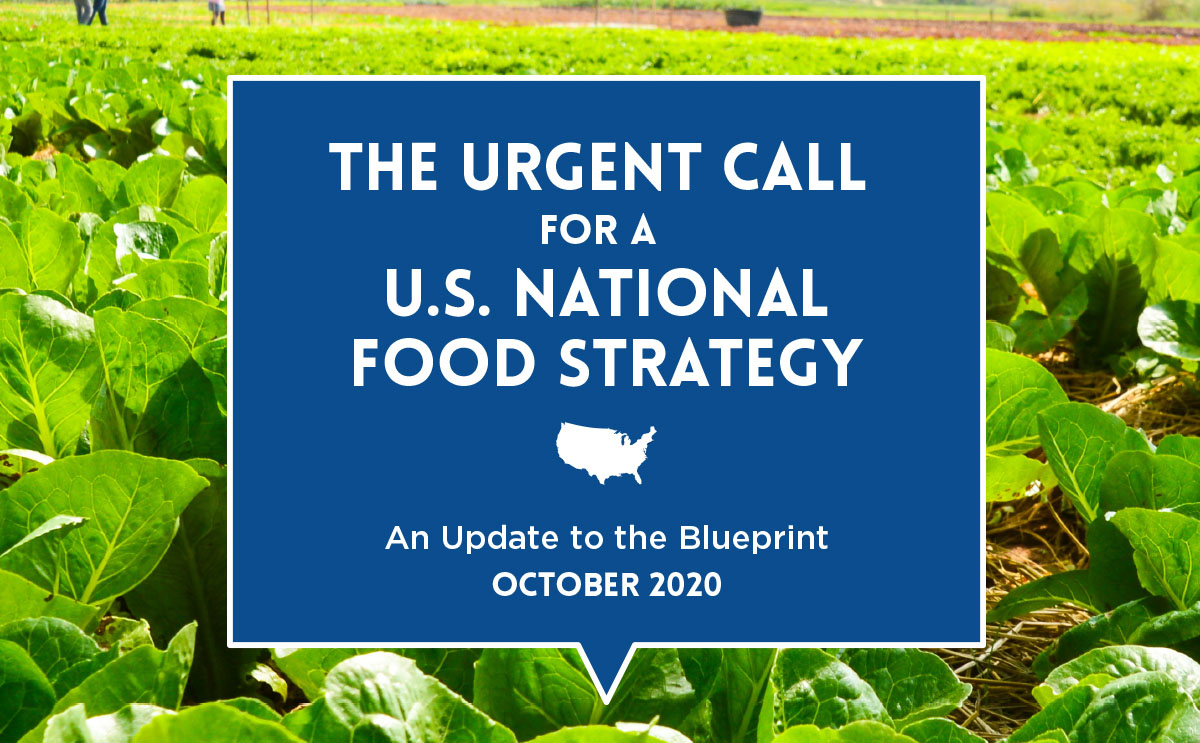 | The Coronavirus (COVID-19) pandemic pushed the U.S. food system to the brink of catastrophic collapse, exposing deeply-rooted instability, inefficiencies, and injustices. For years, food policy experts have warned that the nation's arcane and fragmented regulatory regime was ill-equipped to respond to crises. The COVID-19 pandemic proved these concerns well-founded and warranting immediate action. A national food strategy would provide a responsive framework to identify and address the most complex issues and encourage a transition to a more equitable, efficient, and economically-resilient food system. This fall, in partnership with Vermont Law School’s Center for Agriculture and Food Systems (CAFS), we released The Urgent Call for a U.S. National Food Strategy: An Update to the Blueprint and three accompanying briefs: 1) an Executive Summary, 2) a Call for Congress to Implement a U.S. National Food Strategy, and 3) Call for the Incoming Administration to Implement a National Food Strategy. In this call to action, CAFS and FLPC advocate for an inclusive, coordinated, and long-term approach to federal food policymaking. Adopting a National Food Strategy will help to identify our policy priorities and provide opportunities for all stakeholders to influence how government should navigate the tradeoffs inherent in food policymaking. | | | | | | | | | | | | | | Recent Events and Publications | | 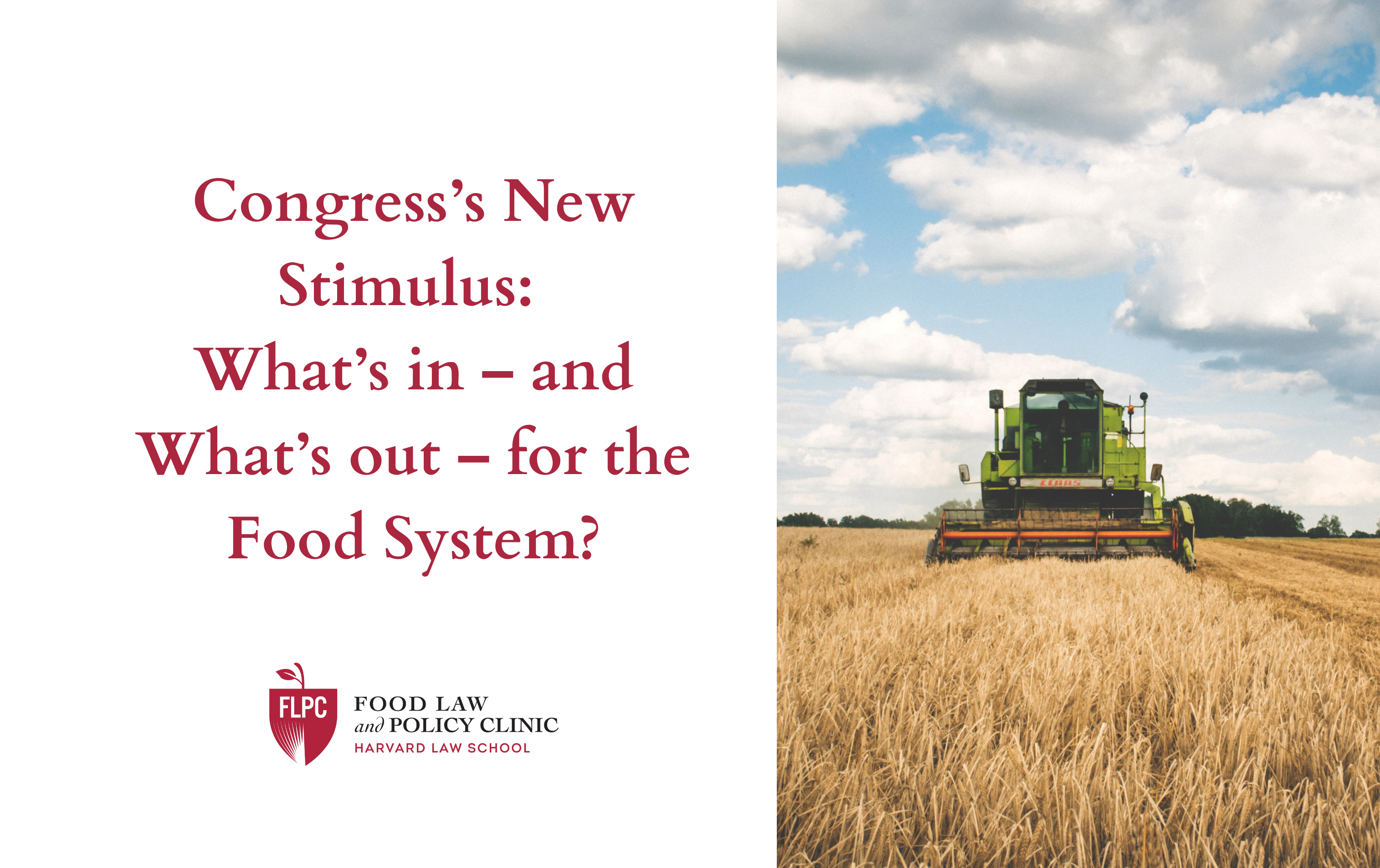 | | This month, FLPC published an analysis on its blog that explores how Congress's most recent COVID-19 stimulus package affects the food system. The analysis compares the stimulus' measures to FLPC's May 2020 recommendations of federal policies to support the food system and consumers during the COVID-19 pandemic. | |  | | In November, FLPC and the Harvard Food Law Society co-hosted a virtual lecture featuring Andrea Freeman, author of "Skimmed: Breastfeeding, Race, and Injustice." Professor Freeman's presentation examined the historical, cultural, and legal drivers that perpetuate Black women's use of infant formula and obstruct opportunities to breastfeed infants. | | 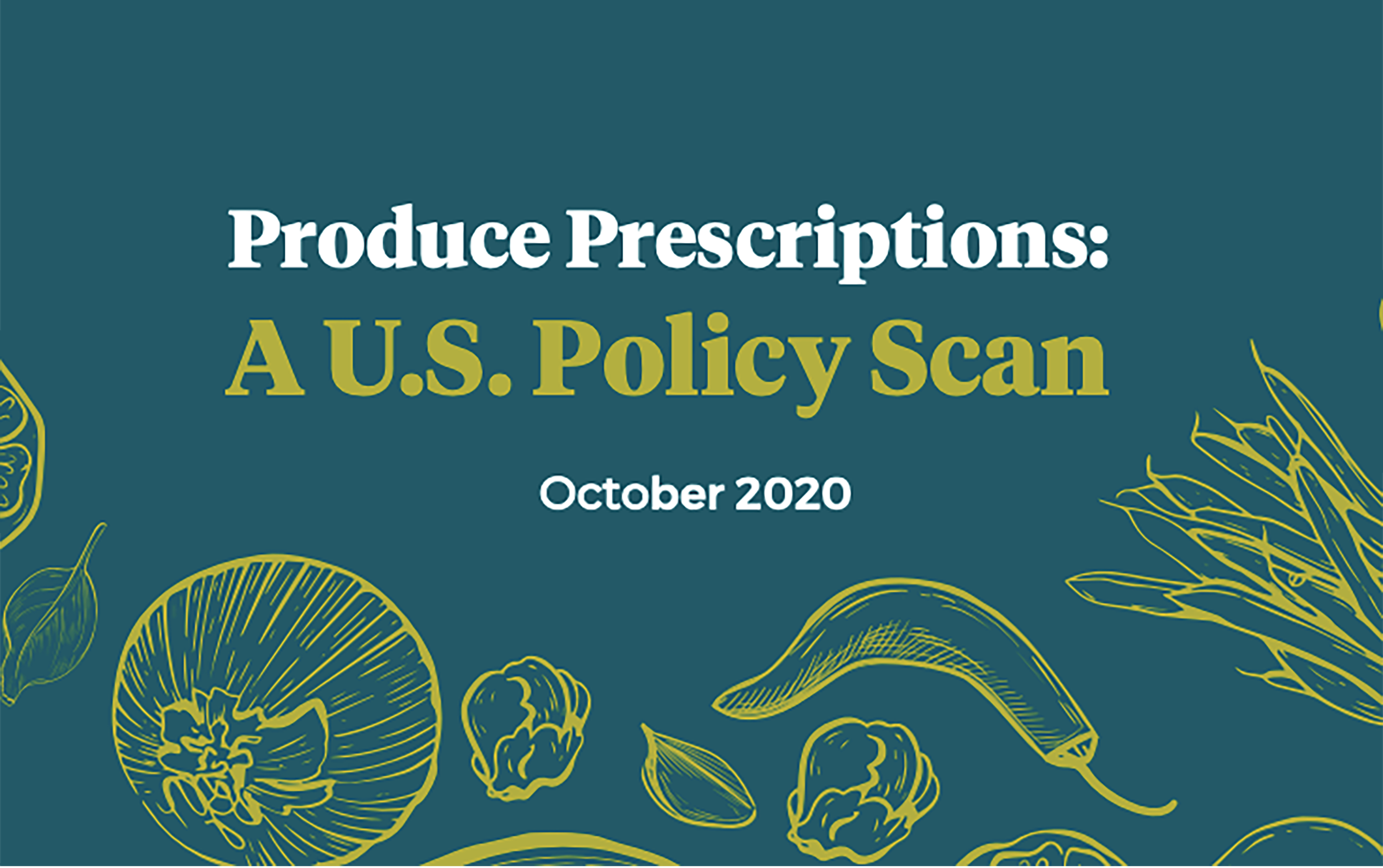 | | In October, FLPC's staff and colleagues at the Center for Health Law and Policy Innovation announced the launch of Mainstreaming Produce Prescription (Rx) Programs, a new initiative to increase access to nutritious food and improve health outcomes for people with diet-related diseases. Along with the announcement, FLPC and CHLPI released initial research providing an overview of opportunities and challenges for scaling up Produce Rx in existing health care and food access programs. A broader National Produce Prescription Policy Strategy Report will be released in 2021 to provide a roadmap for action on the issue. | | | 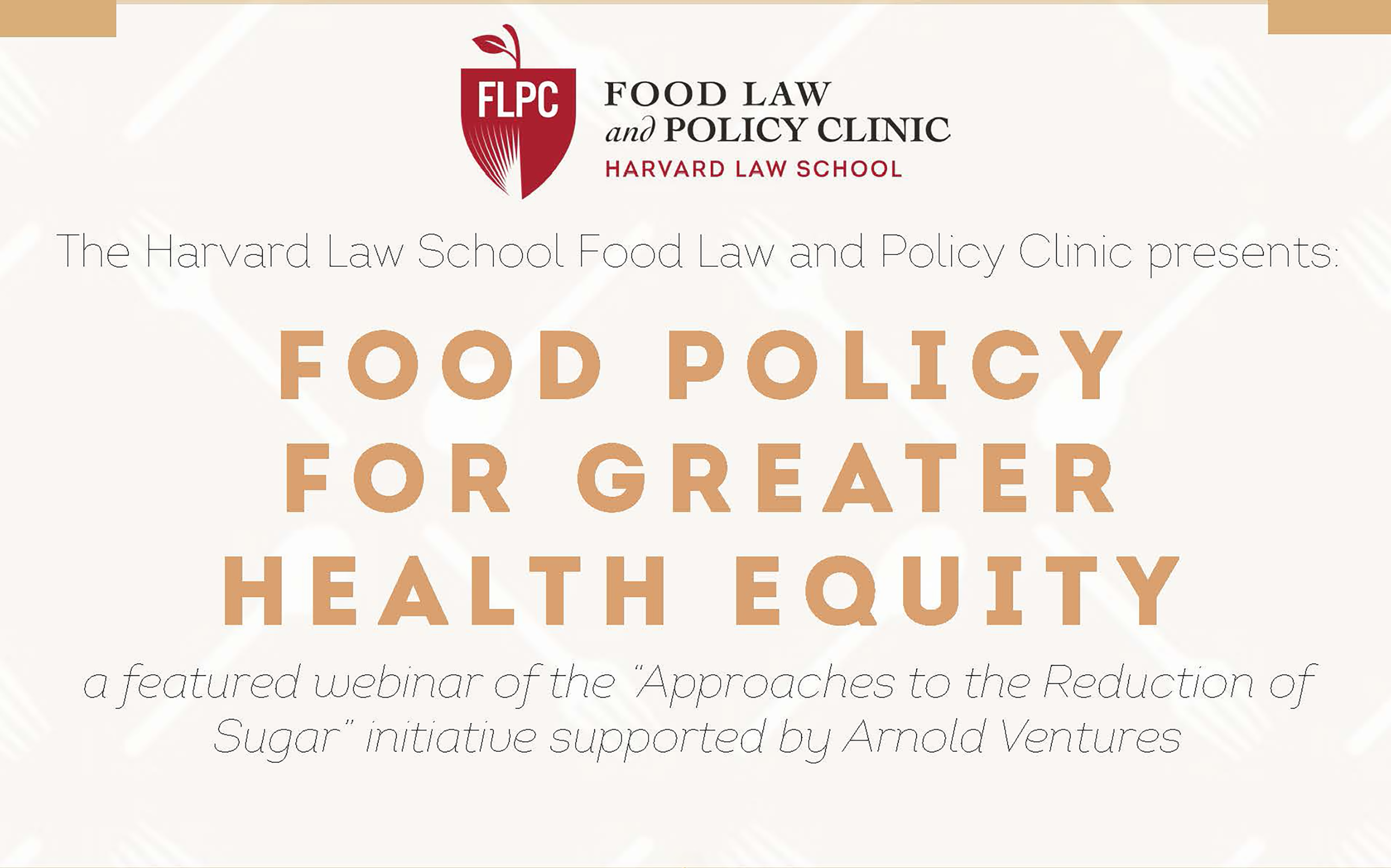 | | In December, FLPC hosted the first webinar in a series of virtual sessions to discuss the most equitable and effective policy options for reducing the consumption of foods and beverages high in added sugar. This event was part of the FLPC Approaches to Reducing the Consumption of Sugar initiative, supported by Arnold Ventures. | | 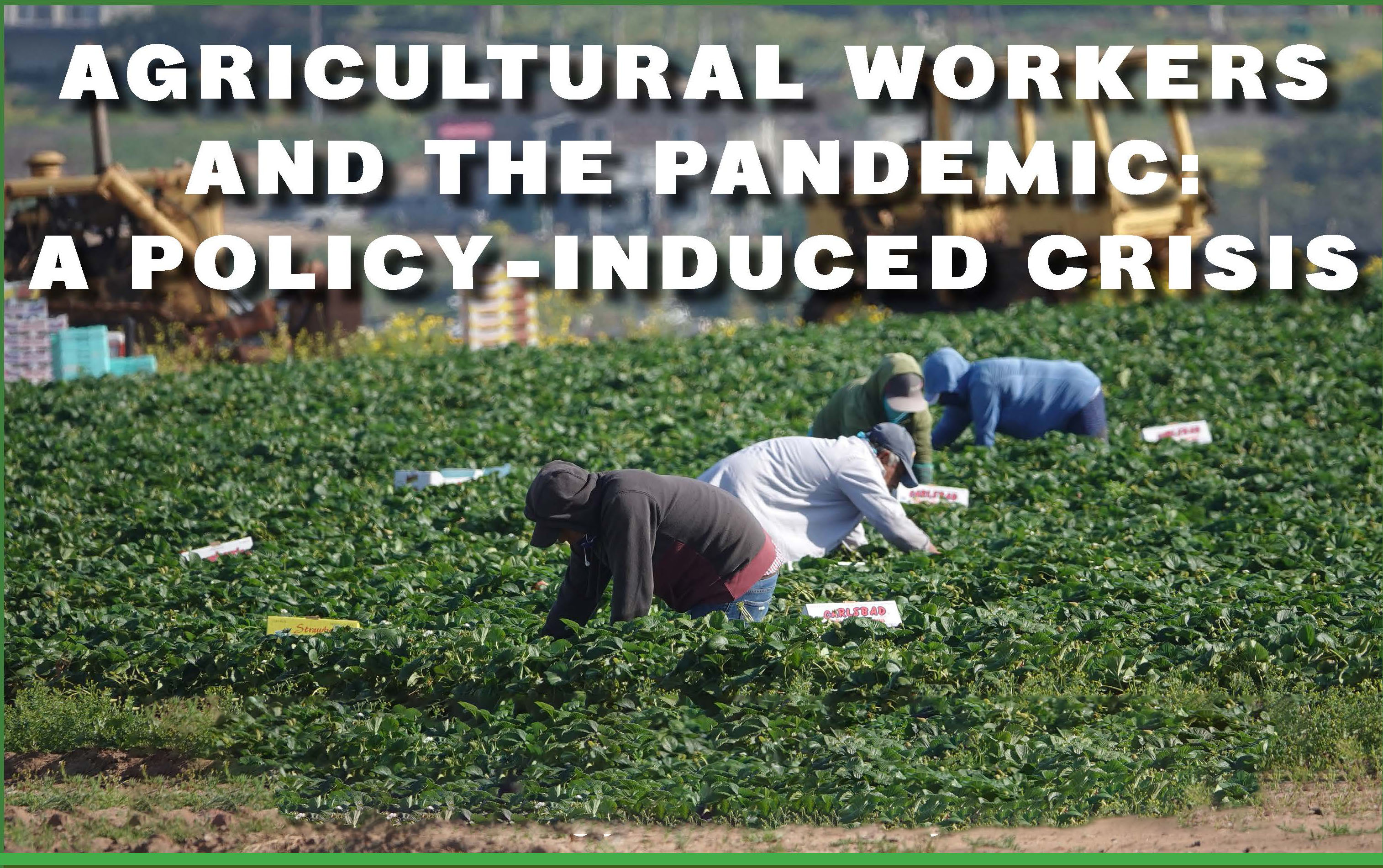 | | Agricultural workers in the United States are suffering the worst of Covid-19. Meat-packing plants and labor-intensive farms are among coronavirus hotspots, with workers at these sites experiencing extraordinarily high rates of infection. In October, FLPC hosted a panel of lawyers, journalists, and organizers to examine the law and policy behind this disproportionate impact. | | 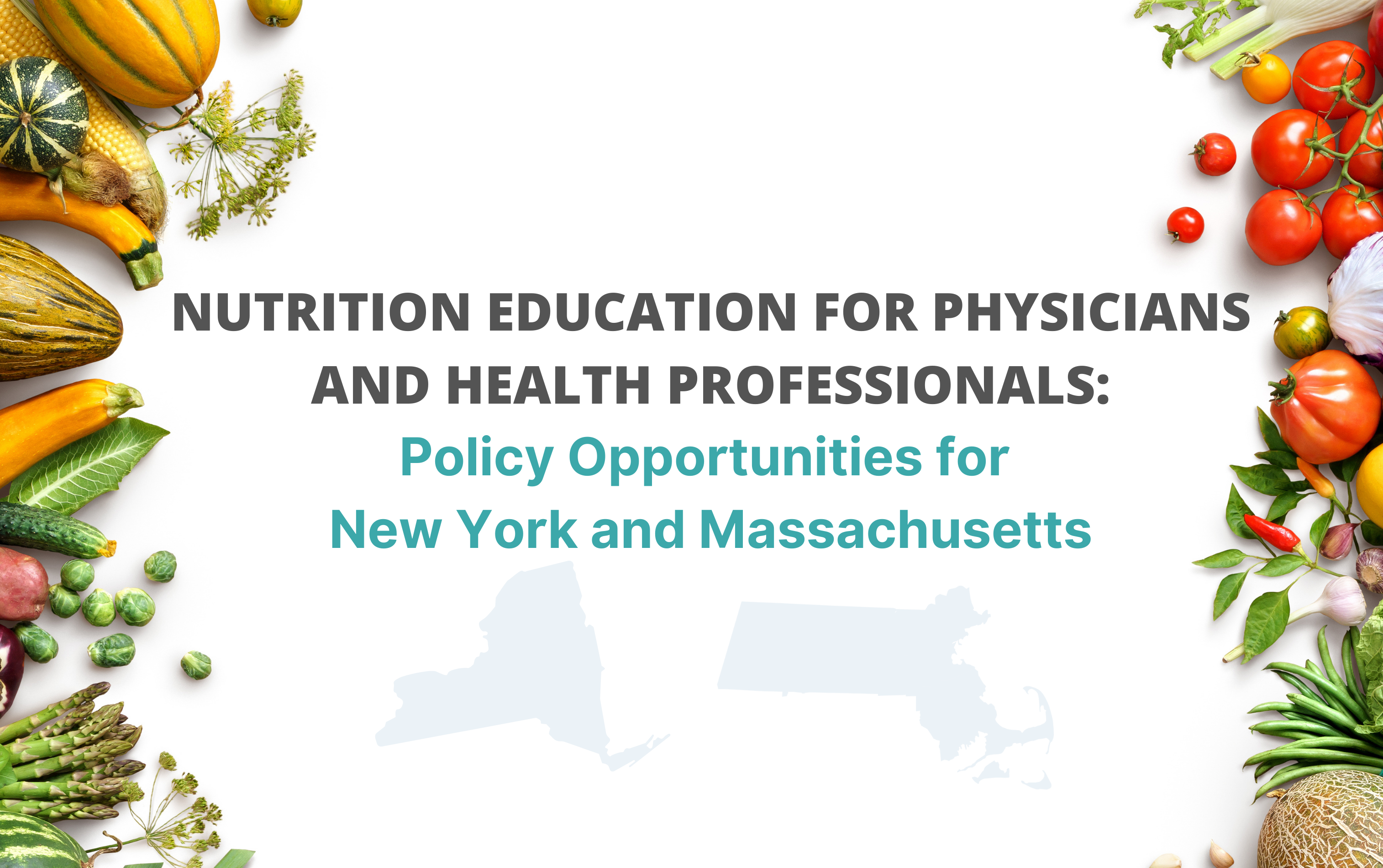 | | In September, FLPC published two issue briefs on Nutrition Education for Physicians and Health Professionals: Policy Opportunities for New York and Policy Opportunities for Massachusetts. The New York issue brief was published in partnership with Brooklyn Borough President Eric Adams. Both briefs outline a menu of state-level policy opportunities to systematically improve nutrition education for doctors and health professionals. | | | | | | | | | | | | FLPC was pleased to welcome Esther Akwii as a Clinical Fellow in September. Before joining FLPC, Esther worked at the Center for Agriculture and Food Systems at Vermont Law School, where she conducted research on wide-ranging food system topics and taught a course on the law and policy of local food systems. Esther received her Master of Laws in Food and Agriculture Law, with distinction from Vermont Law School in 2020. She holds a Postgraduate Diploma in Legal Practice from the Law Development Centre, a Bachelor of Laws degree from Makerere University, and a Diploma in Law from the Law Development Centre (UG). | | | | | | In August, FLPC was pleased to welcome Clinical Fellow Joseph Beckmann as a new member of its team. Prior to joining the clinic, Joseph provided legal services to start-ups and mid-sized businesses in the food, beverage, and agriculture industries. He received a Bachelor of Arts in Political Science from the University of Chicago in 2011, a Certificate in Entrepreneurship from the Wisconsin School of Business in 2020, and a Juris Doctor degree from the University of Wisconsin Law School in 2020. | | | | | | | Ona Balkus, Food Policy Director at the D.C. Office of Planning and former FLPC Senior Clinical Fellow, wrote an article for The Appeal about the roll that government should play in addressing the root causes of food insecurity. | | | | This Wall Steet Journal article by Anne Steel highlights FLPC's former student, Emily Groden. The article describes Groden's journey to starting her own frozen waffle company. | | | | | | | | | | | | | | | | | | The Harvard Law School Food Law and Policy Clinic (FLPC) serves partner organizations and communities by providing guidance on cutting-edge food system issues, while engaging law students in the practice of food law and policy. FLPC’s work focuses on increasing access to healthy foods, supporting sustainable production and regional food systems, promoting community-led food system change, and reducing waste of healthy, wholesome food. FLPC is committed to advancing a cross-sector, multi-disciplinary and inclusive approach to its work, building partnerships with academic institutions, government agencies, private sector actors, and civil society with expertise in public health, the environment, and the economy. Learn more about FLPC. | | | | | | | | | | | |